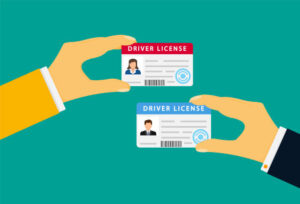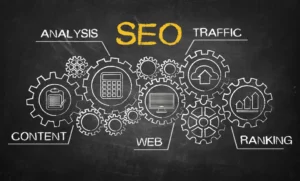Top 5 Tips and Tricks to Create Logo Designs Like a Pro
Creating a standout logo is an essential part of building a strong brand identity. It’s the face of your business and often the first impression customers get. Whether you’re a startup or a well-established company, designing a logo that resonates with your target audience is crucial. At Tech Team, we specialize in helping businesses craft digital identities, and today, we’re sharing some expert tips and tricks to help you design logos that are memorable, versatile, and impactful.
Here are the top 5 tips and tricks to help you create a professional logo:
1. Know Your Brand Inside Out
Before diving into the design process, it’s essential to thoroughly understand your brand. Your logo needs to represent your company’s mission, values, and unique selling proposition (USP). Ask yourself:
- What are the core values of your brand?
- Who is your target audience?
- What emotions do you want your brand to evoke?
The answers to these questions will guide your design choices, including the colors, fonts, and symbols you use in your logo. For instance, a playful children’s toy brand may want a vibrant, friendly logo, while a law firm might prefer a sleek, professional design. Understanding your brand allows you to create a logo that authentically represents your business and resonates with your audience.
Teck Team LLC Tip: Create a mood board with visuals, colors, and design elements that reflect your brand’s personality. This can help you solidify the creative direction of your logo.
2. Keep It Simple and Versatile
Simplicity is key when it comes to logo design. A complex design can become cluttered and lose its impact when scaled down or printed on different mediums. Aim for a design that is clean, straightforward, and easy to recognize at a glance.
Additionally, your logo should be versatile. It should look great whether it’s displayed on a website, business card, billboard, or mobile app. This means it needs to work in various sizes and formats. A strong logo can be easily reproduced in black and white, full color, or grayscale without losing its visual appeal.
Teck Team LLC Tip: Test your logo at different sizes and in different formats to ensure that it maintains its clarity and effectiveness across various platforms.
3. Choose the Right Color Palette
Colors play a huge role in how your logo is perceived. Different colors evoke different emotions and reactions, so selecting the right color palette is crucial. For example:
- Red: Passion, energy, and urgency
- Blue: Trust, reliability, and professionalism
- Yellow: Optimism, happiness, and clarity
- Black: Elegance, sophistication, and power
You should also consider color psychology based on your industry. Research shows that certain industries favor specific colors to communicate their messages more effectively. For example, tech companies often use blue for its associations with trust and security, while food and beverage brands frequently use red or yellow to stimulate appetite.
Teck Team LLC Tip: Stick to two or three main colors to avoid overwhelming the design, and ensure that the colors you choose complement each other harmoniously.
4. Choose a Memorable Font
Typography is an essential element of logo design. The font you choose should reflect the character of your brand while remaining readable and functional across various platforms. There are three main types of fonts to consider:
- Serif fonts: Convey tradition, reliability, and authority. These are great for law firms, financial institutions, or editorial publications.
- Sans-serif fonts: Offer a modern, clean, and minimalistic feel, commonly used by tech companies, startups, and fashion brands.
- Script or hand-drawn fonts: Add a personal, creative, or elegant touch. These are perfect for brands that want to emphasize individuality or luxury.
Ensure the font you select aligns with your brand’s personality, and don’t be afraid to modify or customize the typeface to make it unique.
Teck Team LLC Tip: Avoid using overly decorative or complex fonts as they can hinder readability, especially at smaller sizes.
5. Get Feedback and Refine
Once you have a logo concept, it’s important to gather feedback from others. You can show your design to colleagues, friends, or even conduct a small focus group with your target audience. Fresh eyes often catch details you might have missed and can offer valuable insights into how others perceive your logo.
When gathering feedback, ask the following questions:
- Does the logo communicate the brand’s message clearly?
- Is the logo memorable and easy to recognize?
- Does it evoke the desired emotions?
Be open to constructive criticism, and don’t be afraid to make changes if necessary. Logo design is an iterative process, and refining your design based on feedback can lead to a stronger final product.
Teck Team LLC Tip: After receiving feedback, step away from your design for a day or two before making changes. This can help you view the design with fresh perspective.
Conclusion
Designing a professional logo takes time, creativity, and a deep understanding of your brand’s identity. By following these top 5 tips understanding your brand, keeping your design simple, choosing the right colors, selecting a memorable font, and refining your work based on feedback you can create a logo that stands out and effectively communicates your brand’s message.













Post Comment